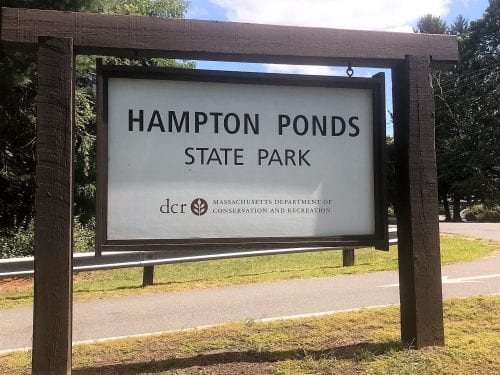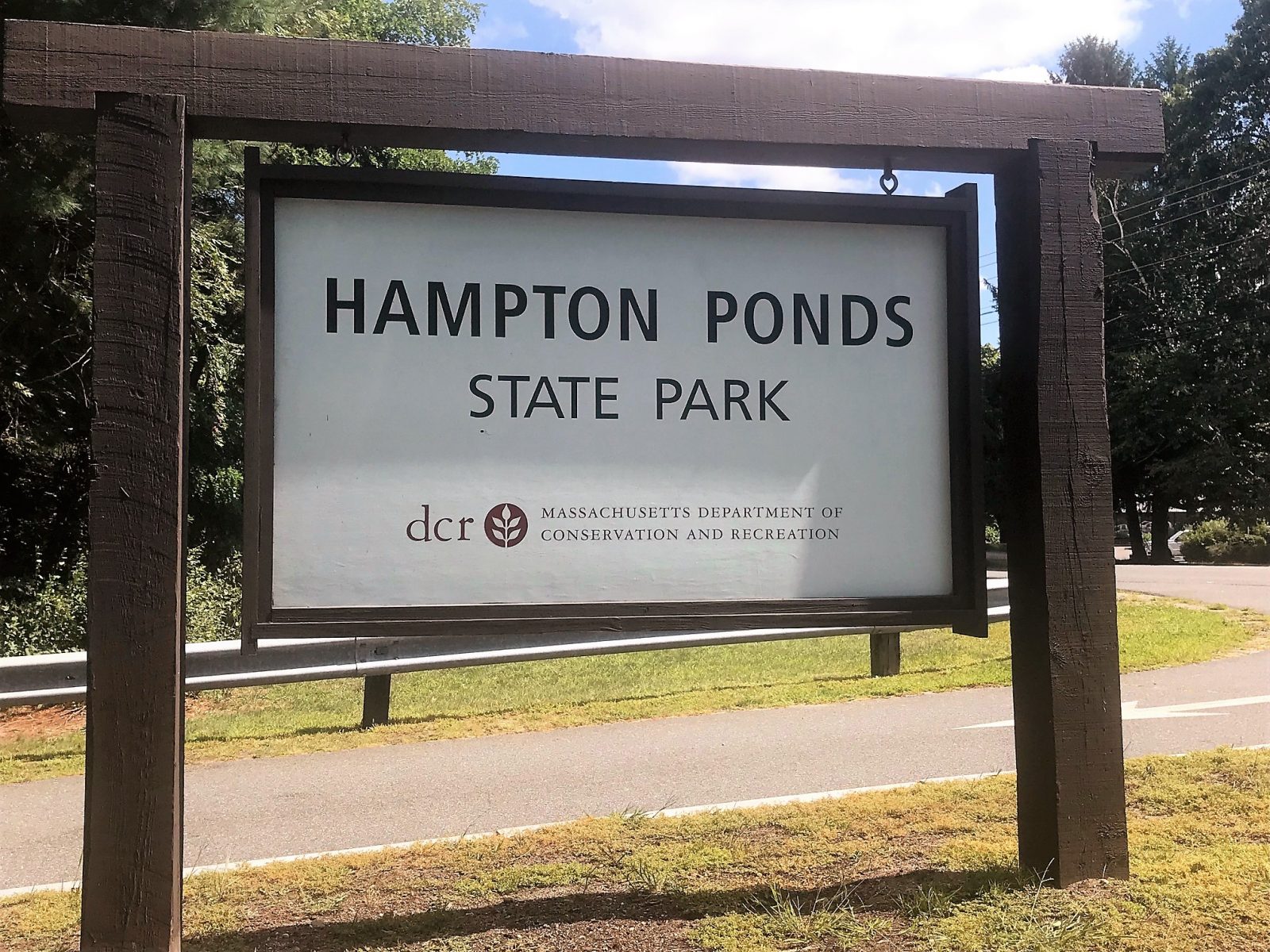 WESTFIELD – After a lengthy public hearing, the Westfield Conservation Commission June 9 approved a Notice of Intent filed by Hampton Ponds Association to permit SOLitude Lake Management for an ongoing aquatic management program to treat non-native invasives in Pequot Pond.
WESTFIELD – After a lengthy public hearing, the Westfield Conservation Commission June 9 approved a Notice of Intent filed by Hampton Ponds Association to permit SOLitude Lake Management for an ongoing aquatic management program to treat non-native invasives in Pequot Pond.
Also participating on theCommission hearing call Tuesday was Marla Hanc, chairman of the Southampton Conservation Commission. Pequot Pond is a 155-acre pond in Southampton and Westfield.
Dominic Meringolo, environmental engineer with SOLitude, said the pond has a longstanding infestation of Eurasion watermilfoil, variable watermilfoil, and curly-leaf pondweed. He said herbicide management has worked well in the past, reducing the Eurasian milfoil infestation from 70 acres to 8 acres in the pond. He also said SOLitude surveyed the pond for management in 2019.
Meringolo said they were asking for a five-year approval, specifically asking for the ability to use USDA Mass. registered aquatic herbicides, which he said are reviewed and approved by many state and federal agencies, including the Environmental Protection Agency.
In addition to monitoring and herbicide treatments, the permit includes hand pulling for smaller, nuisance vegetation. Meringolo said it will be an ongoing program with monitoring and active management that will provide a year-end report for the commission with some recommendations for the following year.
“You keep calling this a successful project, yet you keep coming back every three years. Successful to me would be eradicating non-native species,” said Conservation Commission member Thomas Sharp.
“Absolutely right, although there are no tools to completely eradicate once it becomes present. Managing is the best we could hope for; that’s not a realistic goal for this type of work,” Meringolo replied. He also said there would be one herbicide treatment per year, in response to another of Sharp’s questions.
Meringolo called the program responsive management, that includes treatment, monitoring and education on transporting weeds on trailers and boats.
Chairman David A. Doe asked what concerns were raised in the two meetings with the Southampton Conservation Commission.
Hanc said part of their concern was the lengthy list of chemicals this time. “They were fairly limited before. None of us are chemists or aquatic biologists,” she said, suggesting a condition of a peer review for the chemicals.
Meringolo said the nine products listed on the NOI are labelled for use in ponds and lakes by DEP, and the management program itself is compliant with the guidance from the DEP. “We can get a permit from the DEP to use those products. Our company’s only purpose is to manage lakes and ponds. I would hope that would suffice in most cases,” he said.
Doe asked if having the extensive list allows them to make their treatments more targeted for specific species. Meringolo said the NOI is for the larger program, and they wanted to include all reasonable, potential options for the next five years, so they wouldn’t have to come back for another NOI.
“I might suggest you narrow your chemicals to what you’ve used in the past, rather than giving us this big list. I think if you focused on what you’ve used before and were successful, and if there’s a problem with another invasive, come back,” Sharp said.
“This is going to be an annual cycle. We’ll know from one year to the next. If we see something out there this summer, we’ll make the plan for next year,” Meringolo said, with Sharp suggesting coming back to the commission next year would be reasonable.
Meringolo said if he had to pick one herbicide this year, it would be diquat, which the company is planning to use for the milfoil. He said some commissions allow them to come in annually with a written request to use anything other than diquat, which prevents the cost of another NOI. He also said the diquat would have to be applied fairly soon in order to treat the curly leaf pondweed, which has taken over as Eurasian milfoil has died down.
“You take away one specie, then another invasive species gets to grow before the native species can grow, which takes longer. We were 70 acres of Eurasion milfoil at one point, now we’re down to 8 acres,” Meringolo said.
Donald Ledger of the Hampton Ponds Association said the order was written to allow flexibility for treatment as invasive species come in. “This is a very costly expense to have this process go through,” he said, adding that funds are limited for the Hampton Ponds Association.
A commission member suggested they condition that the chemicals be checked annually, because the science changes. “We’re at a little bit of a disadvantage on the science side on this one, but we also have to somewhat trust the standards,” he said.
Meringolo said the year-end report would be the best time to check in with the commission, to review what the company did over the summer, and their plans for next year.
Doe asked Hanc if Southampton had put together their conditions for the NOI. She said in prior years members would come to the Westfield meetings and listen, because the conditions have to match up in both towns.
Doe asked if Southampton would be comfortable limiting the company to diquat the first year.
“Personally, I like the idea. We didn’t want to be giving carte blanche,” Hanc said, adding that she couldn’t speak for the whole commission.
After a discussion on whether to wait until the June 23 meeting to vote, the commission took into consideration that treatment in July would be less effective on the curly leaf pondweed, which would be nearing the end of its growing season at that time. Conservation coordinator Meredith Borenstein also pointed out that the application for the NOI had been submitted in April.
In lieu of a bond, Meringolo said the City of Westfield could be added to the liability insurance, a solution endorsed by Ledger for the Association. Borenstein said she would draft the order of conditions and send them to Southampton to consider in their meeting on June 15.








